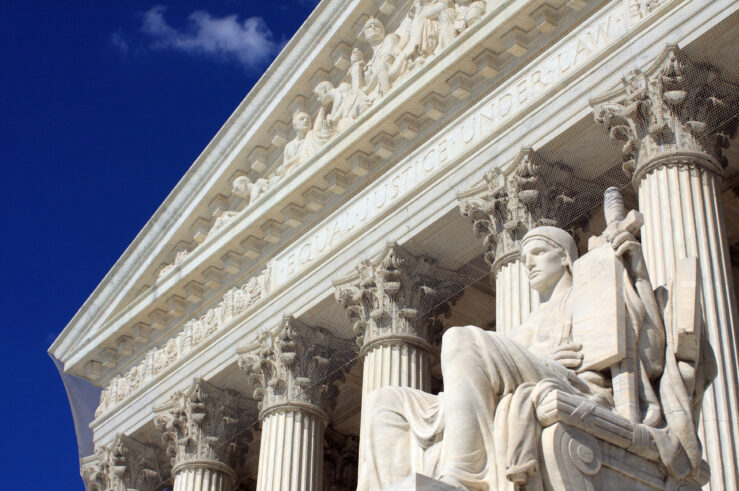Showing archive for: “Collusion & Cartels”
The Supreme Court Misses the Big Consumer Welfare Picture in NCAA v. Alston
In its June 21 opinion in NCAA v. Alston, a unanimous U.S. Supreme Court affirmed the 9th U.S. Circuit Court of Appeals and thereby upheld a district court injunction finding unlawful certain National Collegiate Athletic Association (NCAA) rules limiting the education-related benefits schools may make available to student athletes. The decision will come as no ... The Supreme Court Misses the Big Consumer Welfare Picture in NCAA v. Alston
The Globalization of Antitrust: A Cost-Benefit Appraisal
Overview Virtually all countries in the world have adopted competition laws over the last three decades. In a recent Mercatus Foundation Research Paper, I argue that the spread of these laws has benefits and risks. The abstract of my Paper states: The United States stood virtually alone when it enacted its first antitrust statute in ... The Globalization of Antitrust: A Cost-Benefit Appraisal
The Future of FTC Equitable Monetary Relief after AMG Capital Management
The U.S. Supreme Court’s just-published unanimous decision in AMG Capital Management LLC v. FTC—holding that Section 13(b) of the Federal Trade Commission Act does not authorize the commission to obtain court-ordered equitable monetary relief (such as restitution or disgorgement)—is not surprising. Moreover, by dissipating the cloud of litigation uncertainty that has surrounded the FTC’s recent ... The Future of FTC Equitable Monetary Relief after AMG Capital Management
Congress Should Not Legalize a News Media Cartel
Amazingly enough, at a time when legislative proposals for new antitrust restrictions are rapidly multiplying—see the Competition and Antitrust Law Enforcement Reform Act (CALERA), for example—Congress simultaneously is seriously considering granting antitrust immunity to a price-fixing cartel among members of the newsmedia. This would thereby authorize what the late Justice Antonin Scalia termed “the supreme ... Congress Should Not Legalize a News Media Cartel
Cooperation, Competition, and COVID-19
Cooperation is the basis of productivity. The war of all against all is not a good model for any economy. Who said it—a rose-emoji Twitter Marxist, or a card-carrying member of the laissez faire Chicago School of economics? If you guessed the latter, you’d be right. Frank Easterbrook penned these words in an antitrust ... Cooperation, Competition, and COVID-19
There is No Cure for Government Incompetence
The pandemic is serious. COVID-19 will overwhelm our hospitals. It might break our entire healthcare system. To keep the number of deaths in the low hundreds of thousands, a study from Imperial College London finds, we will have to shutter much of our economy for months. Small wonder the markets have lost a third of ... There is No Cure for Government Incompetence
Is it time for a new approach to generic drugs?
We don’t yet know how bad the coronavirus outbreak will be in America. But we do know that the virus is likely to have a major impact on Americans’ access to medication. Currently, 80% of the active ingredients found in the drugs Americans take are made in China, and the virus has disrupted China’s ability ... Is it time for a new approach to generic drugs?
The Upsides of Collusion and Concentration
Conspiracies and collusion often (always?) get a bad rap. Adam Smith famously derided “people of the same trade” for their inclination to conspire against the public or contrive to raise prices. Today, such conspiracies and contrivances are per se illegal and felonies punishable under the Sherman Act. It is well known and widely accepted that ... The Upsides of Collusion and Concentration
Efficient Cartels and the Public Interest Defence – Do They Exist?
The concept of a “good” or “efficient” cartel is generally regarded by competition authorities as an oxymoron. A cartel is seen as the worst type of antitrust violation and one that warrants zero tolerance. Agreements between competitors to raise prices and share the market are assumed unambiguously to reduce economic welfare. As such, even if ... Efficient Cartels and the Public Interest Defence – Do They Exist?
Competition Law as a Swiss Army Knife (Move Fast and Break Things?)
[TOTM: The following is the fourth in a series of posts by TOTM guests and authors on the politicization of antitrust. The entire series of posts is available here.] This post is authored by Valentin Mircea, a Senior Partner at Mircea and Partners Law Firm, Bucharest, Romania. The enforcement of competition rules in the European ... Competition Law as a Swiss Army Knife (Move Fast and Break Things?)
Towards a Democratic Antitrust
This symposium discusses the “The Politicization of Antitrust.” As the invite itself stated, this is an umbrella topic that encompasses a wide range of subjects: from incorporating environmental or labor concerns in antitrust enforcement, to political pressure in enforcement decision-making, to national security laws (CFIUS-type enforcement), protectionism, federalism, and more. This contribution will focus on ... Towards a Democratic Antitrust
The Politicization of Antitrust Blog Symposium
The operative text of the Sherman Antitrust Act of 1890 is a scant 100 words: Section 1: Every contract, combination in the form of trust or otherwise, or conspiracy, in restraint of trade or commerce among the several States, or with foreign nations, is declared to be illegal. Every person who shall make any contract ... The Politicization of Antitrust Blog Symposium









